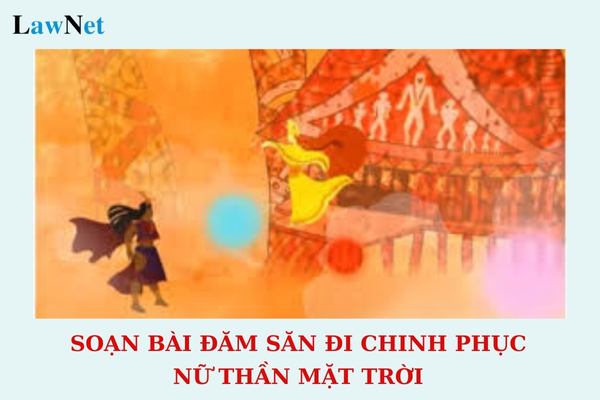Vietnam: What are the preparing the shortest lesson "Dam San's Journey to Conquer the Sun Goddess/Đăm Săn đi chinh phục nữ thần Mặt Trời"? What is the age of students entering 10th Grade?
What are the preparing the shortest lesson "Dam San's Journey to Conquer the Sun Goddess/Đăm Săn đi chinh phục nữ thần Mặt Trời"?
The lesson "Dam San's Journey to Conquer the Sun Goddess/Đăm Săn đi chinh phục nữ thần Mặt Trời" is part of the 10th-grade Literature curriculum in Vietnam.
Below is the shortest sample lesson "Dam San's Journey to Conquer the Sun Goddess/Đăm Săn đi chinh phục nữ thần Mặt Trời":
|
Lesson "Dam San's Journey to Conquer the Sun Goddess/Đăm Săn đi chinh phục nữ thần Mặt Trời" 1. Genre: Epic |
Note: The sample lesson "Dam San's Journey to Conquer the Sun Goddess/Đăm Săn đi chinh phục nữ thần Mặt Trời" is for reference only.

What are the preparing the shortest lesson "Dam San's Journey to Conquer the Sun Goddess/Đăm Săn đi chinh phục nữ thần Mặt Trời"? What is the age of students entering 10th Grade? (Image from the Internet)
What is the age of students entering 10th Grade in Vietnam?
Under Clause 1, Article 33 of the lower secondary school, upper secondary school and multi-level school charter issued with Circular 32/2020/TT-BGDDT, the age of students entering 10th Grade in Vietnam is as follows:
Secondary school age
1. Children shall start the sixth grade at the age of 11 and the tenth grade at the age of 15. For students skipping a grade or over-age students, the sixth grade and tenth grade starting ages shall be adjusted based on the age at which these students graduate from the previous education level.
2. For ethnic minority students, students with disabilities, disadvantaged students and students returning to Vietnam from abroad, maximum secondary school starting age shall be 03 years older than the compulsory starting age.
3. At an education level, students may not repeat a grade more than 03 times.
4. Students with good physical capacity and early intelligence development may enter the sixth or tenth grade before the compulsory starting age or skip to the next grade within the same education level. Consideration shall be given on a case-by-case basis and in accordance with the following procedures:
a) The student’s parent or guardian submits an application to the school.
b) The school principal establishes a survey and advisory council with the following main members: representatives of school leaders and parent committee of the school; and teachers teaching the student's class.
c) The school principal considers and makes a decision based on the result of the survey conducted by the survey and advisory council.
5. Students at an appropriate age returning to Vietnam from abroad and children of foreigners working in Vietnam may enroll in local or non-local secondary schools capable of receiving them. Consideration shall be given on a case-by-case basis and in accordance with the following procedures:
a) The student’s parent or guardian submits an application to the school.
b) The school principal organizes an assessment of the student’s capacity and places them in a suitable class.
Thus, 10th-grade students are typically 15 years old. However, ethnic minority students, students with disabilities, students in particularly disadvantaged areas, students returning from abroad, and those who have advanced in their studies earlier or later than the stipulated age can enter 10th Grade at ages higher or lower than the standard age.
Are 10th-grade students in Vietnam considered youth?
Under Article 1 of the Youth Law 2020, the definition is as follows:
Youth
Youth are Vietnamese citizens aged from 16 to 30.
Under this regulation, 10th-grade students are not considered youths.
However, in cases where 10th-grade students are ethnic minorities, students with disabilities, students in particularly disadvantaged areas, students returning from abroad, or those subject to grade retention and entering 10th Grade at a later age, they could be considered youth if they are 16 years or older.

